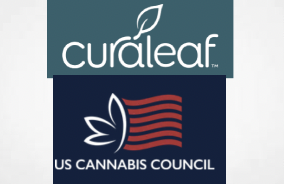George Allen President at Lowell Herb company has related the following about cannabis investement fund, Navy Capital, calling it a day.
He only has good things to say but it is interesting to see this news come in today at the same time as the Safe Harbor update about their blanacing act with Colorado Credit Union (“PCCU”). Certain voices in the industry have been warning of this. Is this the trickle before the flood?
Allen writes
The Long-time cannabis focused investment fund Navy Capital sent a letter to investors over the weekend in which they announced a that after 8 years they are winding down their investing platform. The lengthy letter discusses several failed aspects of the cannabis investing thesis that they pioneered.
For background, the team at Navy capital were unapologetic advocates for the industry and it is hard to see them go. I know one cannabis CEO who recently told me that the advice he once received from Sean/Navy singlehandedly saved his business. That is big chops to give an investor.
Why are they turning in their cleats? Obviously, it was the returns…and the letter goes into detail about the original thesis and what they think went wrong. It says that Navy’s original thesis was that U.S. cannabis legalization would create a profitable market, with early movers benefiting the most. They predicted outsized returns due to a scarcity of capital. They believed strong brands would emerge, similar to alcohol and tobacco, and that institutional investors would eventually enter, driving up valuations. So, what happened?
1. Cannabis Remained a Commodity – Most consumers buy based on price and potency, not brand loyalty.
2. Excessive Debt – Operators borrowed heavily expecting booming markets, but states like New York mismanaged rollouts, letting illegal operators thrive.
3. Regulatory Failures – No major federal progress (e.g., SAFE Banking), and state regulations were inconsistent, stalling growth.
4. Hemp-Derived THC Competition – Loopholes in the 2018 Farm Bill allowed hemp THC products (e.g., Delta-8) to be sold in gas stations and liquor stores, competing directly with licensed cannabis.
There’s also this from the SEC on 14 January 2025, does it have a part to play
SEC Charges Advisory Firm Navy Capital With Misrepresenting Its Anti-Money Laundering Procedures to Investors
Washington D.C., Jan. 14, 2025 —
The Securities and Exchange Commission today charged Connecticut-based investment adviser Navy Capital Green Management, LLC with making misrepresentations related to its anti-money laundering (AML) procedures and for compliance failures. Navy Capital agreed to settle the SEC’s charges and pay a $150,000 civil penalty.
The SEC’s order finds that, from at least October 2018 until January 2022, Navy Capital stated in offering and other documents provided to prospective and existing private fund investors that the firm was voluntarily complying with AML due diligence laws despite those laws not applying to investment advisers, including by conducting specific types of AML due diligence on prospective investors and conducting ongoing AML due diligence monitoring on existing investors. According to the order, Navy Capital’s private fund investors included multiple foreign-based entities with opaque beneficial ownership and sources of wealth. The order finds that Navy Capital did not, in fact, always conduct the AML due diligence as described, including with respect to an entity owned by an individual publicly reported to have suspected connections to money laundering activities. As noted in the order, a foreign court eventually froze the assets of one of Navy Capital’s private funds because it held funds from that investor. The SEC’s order further finds that Navy Capital failed to adopt and implement written policies and procedures reasonably designed to ensure the accuracy of offering and other documents provided to prospective and existing investors.
“This case reinforces the fundamental duty of investment advisers to say what they do and do what they say,” said Tejal D. Shah, Associate Regional Director of the SEC’s New York Regional Office. “Here, Navy Capital failed to follow the AML due diligence procedures that it said it would, thus misleading investors about the level of risk they were undertaking.”
The Commission’s order finds that Navy Capital willfully violated the Investment Advisers Act of 1940 and related rules. Without admitting or denying the findings, Navy agreed to cease and desist from violations of the charged provisions, be censured, and pay the civil penalty mentioned above.
The SEC’s investigation was conducted by Danielle Sallah, Peter Altenbach, and Steven G. Rawlings and was supervised by Ms. Shah, all from the Enforcement Division’s New York Regional Office. The examination team that led to the investigation was conducted by Arthur Schmidt, James Maclean, Rachel Lavery, Gerard Sansobrino, and David Eidelman.
###
Last Reviewed or Updated: Jan. 14, 2025
2023
Back in the glory days of 2020
Volatility in the cannabis sector has opened opportunities for willing investors
(This is an abridged version of a story that appears in the February issue of Marijuana Business Magazine.)
New York-based investment firm Navy Capital is bullish on the cannabis industry.
Since 2016, the company has invested about $200 million in roughly 40 different cannabis companies.
About 90% of those investments are in U.S. cannabis businesses, and over half of those are in the plant-touching space. The rest of Navy Capital’s cannabis investments are in Canadian, European and Israeli companies.
Because of the investment firm’s long-term ties to the cannabis industry, Navy Capital executive Jeff Schultz has seen the evolution of the space.
Volatility in the cannabis sector has opened opportunities for willing investors

















